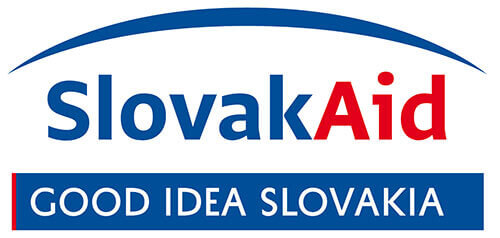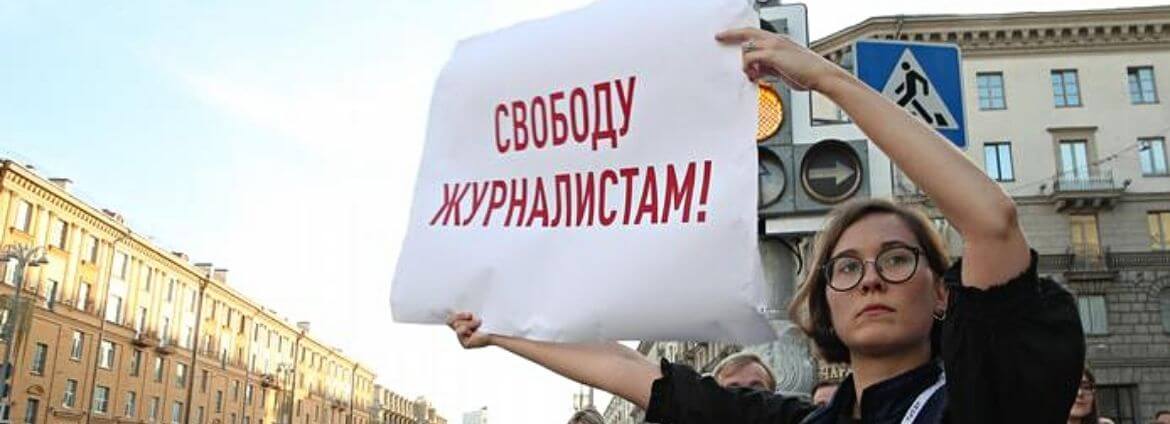On 27 December 2021 Belarusian authorities finally shared a project of the new Constitution which should be voted for during a national referendum scheduled for February 2022. Belarusian democratic forces immediately reacted to that project in a number of information campaigns calling for making the voting ballots invalid.
Simultaneously with the preparation for the referendum the Belarusian regime continues to impose repressions against the representatives of media and civil society. In democratic countries both groups play a crucial role in informing population about the upcoming election and referendum campaigns. The most important are the following functions of mass media during the referendum campaign:
- to inform the society about the questions raised at the referendum and in this way to provide information to the voters which enables them to participate in the public discussion and make a well-informed choice during the voting process;
- to provide an equal opportunity for both supporters and opponents (including the representatives of the political parties and movements and civil society) of the question(s) raised at the referendum to speak up about the issue, i.e. all those who are «for» or «against» it;
- to enable journalist to carry out their activities freely which include also conducting public opinion polls, communicate with authorities and citizens.
To which extent is that possible to do now for mass media and journalists in the light of the current political situation in Belarus?
Public access to information
As of 30 December 2021, more than a dozen large Belarusian and international media sources are named ‘extremist’ and blocked on the Belarusian territory. In addition, around 300 information channels, operating in social media are also enlisted as «extremist». In practice this means that any repost of the information from one of this channels, «liking» it or even exchanging it in personal communication might lead to harsh charges and even arrest as in case of a married couple who spent 111 days in prison for such messaging and consequently had to leave the country for their security.
In the light of narrowing down of the Belarusian media landscape rapidly, the dissolution of the leading independent journalistic organization – the Belarusian Association of Journalists – at the end of August 2021 put the remaining functioning independent media outlets under an additional threat. From now on there is practically no legally functioning structure which could assist or protect Belarusian journalists and newsrooms facing oppression on the Belarusian territory.
The vast majority of the newsrooms continue to work either in underground or have relocated their staff abroad. Remaining ones keep encountering permanent threats and repressive measures. As of 30 December 2021 32 representatives of media stay behind the bars. And this figure does not include influencers, bloggers and online-activists some of whom recently received ridiculous verdicts from 13 to 18 years of imprisonment, such as Siarhei Tsikhanouski (18 years), husband of Sviatlana Tsikhanouskaya, Ihar Losik (15 years), Uladzimir Tsyhanovich (15 years), Eduard Palchys (13 years). Raman Pratasevich who was detained after an infamous hijacking of the plane flying from Athens to Vilnius awaits his verdict, which most probably will be harsh, too.
Freedom of Expression
After new amendments to the Law on Countering Extremism and adoption of a new Law against Nazism Rehabilitation in May 2021, the opportunity for Belarusians to express their views became even more limited. Together with the new Law on Media and Law on Mass Events, the space for freedom and rule of law for Belarusian citizens shrank further which the Organization for Security and Cooperation in Europe noted in its special analysis of the new Law.
As of 30 December 2021, 967 individuals are acknowledged as political prisoners, many of them are civil and political activists and media professionals. Potentially similar number of individuals remain in jail for political reasons but officially are not political prisoners for a number of reasons. Oftentimes families of detained stand against such a status for their friends and family members as they believe that in this way they can avoid severe verdicts for them if the public attention does not focused on those imprisoned.
According to the Human Rights Organization Viasna whose major team remains in jail, already by 26 March 2021, 103 individuals were accused for defamation and insult of Belarusian authorities. A number of other cases concerned the limitation of freedom of expression, where Article 130 of the Belarusian Criminal Code was widely applied, especially in case of ‘stirring the social hatred’ when individuals were accused of negative statements towards the representatives of the law enforcement agencies and were detained for this reason.
In addition, the authorities started to apply the same Article 130 of the Belarusian Criminal Code towards those citizens whose perception of the Belarusian history, especially the period covering the World War II and anti-Soviet resistance, differs from the official narratives which at large coincide with the Soviet one. At the moment leaders of the Polish minority in Belarus Andżelika Borys and Anrdzej Poczobut as well as famous Belarusian artist Ales Pushkin are imprisoned for such charges and are awaiting their verdicts.
Unobstructed work of journalists
Back in June 2020 at the peak of the presidential campaign in Belarus, Belarusian authorities forbade the media to conduct online opinion polls about political preferences of the voters as they equalled them with the ‘opinion polls about a socio-political situation’ which can only be legally conducted in Belarus with a special accreditation licence since 2012. This requirement became an integral part of the new 2021 Law on Media. As an independent sociology has been practically destroyed in Belarus, its population faces severe challenges in acquiring information on the political preferences of their fellow-citizens prior to the upcoming referendum.
A vast majority of the international media outlets are stripped off their accreditation in Belarus since autumn 2020 and the updated Law on Media aims to minimize ‘the foreign influence’ in the field. Thus, from now on a media outlet cannot be established by a foreign entity, foreign citizens and persons without citizenship and legal entities with a foreign participation. In the condition of total repression against the Belarusian mass media and independent information channels in social media, most journalists have little choice where to work legally now, except for state-funded or state-owned or representative offices of Russian media. Alternatively, they can work abroad in the newsrooms evacuated there.
To sum up, prior to the 2022 Constitutional Referendum Belarusians lack the crucial instruments which in democratic countries are implemented by media outlets and journalists. Voting at the referendum in such circumstances contradicts main norms and rules, adopted by the international organizations, including the Venice Commission of the Council of Europe and practiced in democratic states.
The article was prepared by a participant of the SlovakAid scholarship program.











